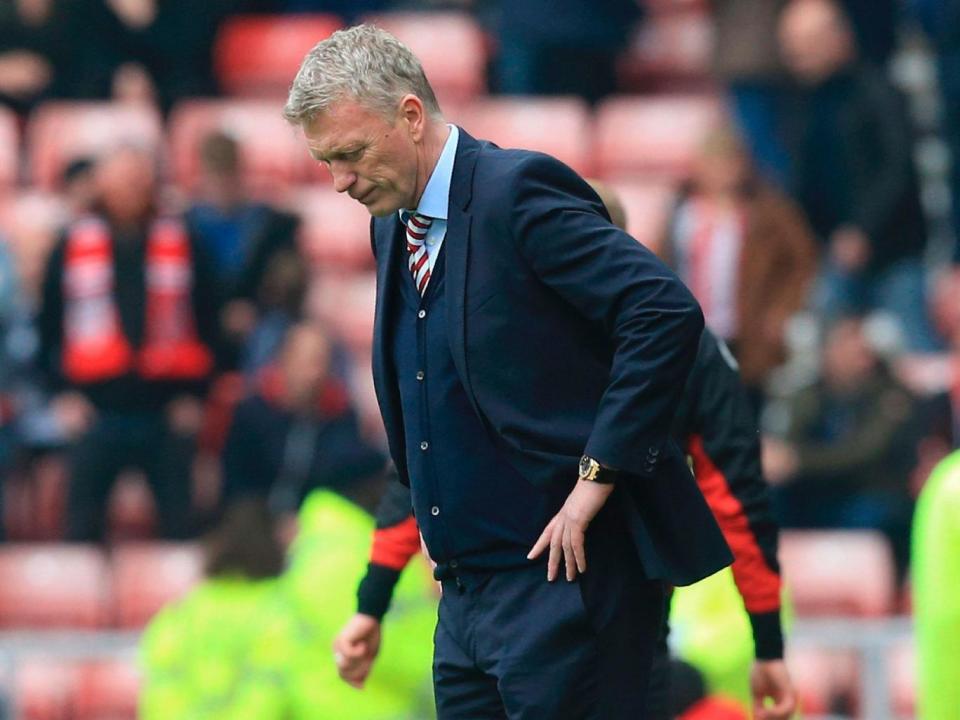David Moyes has reached his nadir - this moment has been a long time coming

It sums up how dismal David Moyes’ time at Sunderland was that the only real point of discussion right now is why it didn’t happen sooner and why the club let him resign, rather than sack him. It also remains surprising as to why they broke the recent trend of changing a manager around March or April to try and stay up, not least because of the amount of windows they had to do so.
One such window arose following the controversy over his comments to BBC reporter Vicki Sparks, and that week remains indicative for so many reasons. Moyes was quite bullish in refusing to answer further questions on the subject following an apology and then a 2-0 defeat away to Leicester City, but that was actually one of the only times he showed anything like defiance in a spell that felt so deflating time and time again.
Nonetheless, his defence of Sunderland’s display at Leicester offered up another reason why his position should have been considered. Moyes felt a typically tepid Sunderland defeat was actually a good performance, and spoke as if it was just a bit of a quirk of fortune that they were struggling to score. “We had some great deliveries from corner-kicks,” he explained. “So you couldn’t say it was anything to do with the deliveries.”
You could, however, say that such a concentration on “deliveries” perfectly displays the problem. In a manner somewhat reminiscent of his ruinous time at Manchester United, albeit scaled to size, Moyes’ painfully dull teams did little other than cross the ball when attacking, offering up the type of football that feels light years behind even a standard level in the Premier League, let alone the elite end.
Those are just the fundamental football reasons as to why he should go, too, since he is simply a manager way behind the times.
Then there are all the other reasons, and how his so-gallingly-frustrating negativity seemed to just suck all life out of a club that needed energy. Right from the start of a season when he was attempting to offer up a “realism” about how difficult the campaign would be for Sunderland, the actual reality was that he was already showing a defeatism that just depressed the whole place, and made relegation even more inevitable.
It was an infuriating sense of surrender - the sort that kills any fight - and that was the common theme in all three of Moyes’ last teams, in stark contrast to his best Everton sides. They were all so easy to beat. That core competitiveness from Goodison Park had evaporated.
There is a wider theme here over whether the tragedy of Moyes’ career is that his greatest peak led to his downfall, given how bad it has been for him since he took that six-year United contract - itself just four years ago now.

The short story is that it remains so surprising that he was allowed so long in his latest job, and even his last press conference emphasised why. His comments about John Terry’s farewell and how he was aware of the plan felt so meek but, even before that, his main take-home from the game - and first statement - was quibbling over whether Chelsea’s last goal in a 5-1 thrashing was offside. Talk about missing the point.
Few will now put Moyes in contention for any Premier League jobs. It feels like a nadir has been reached.

 Yahoo Sports
Yahoo Sports 